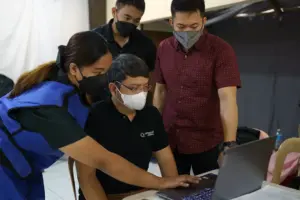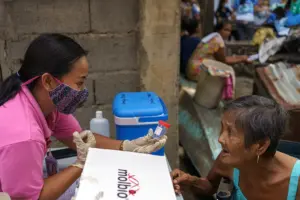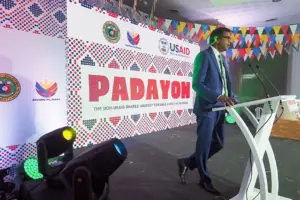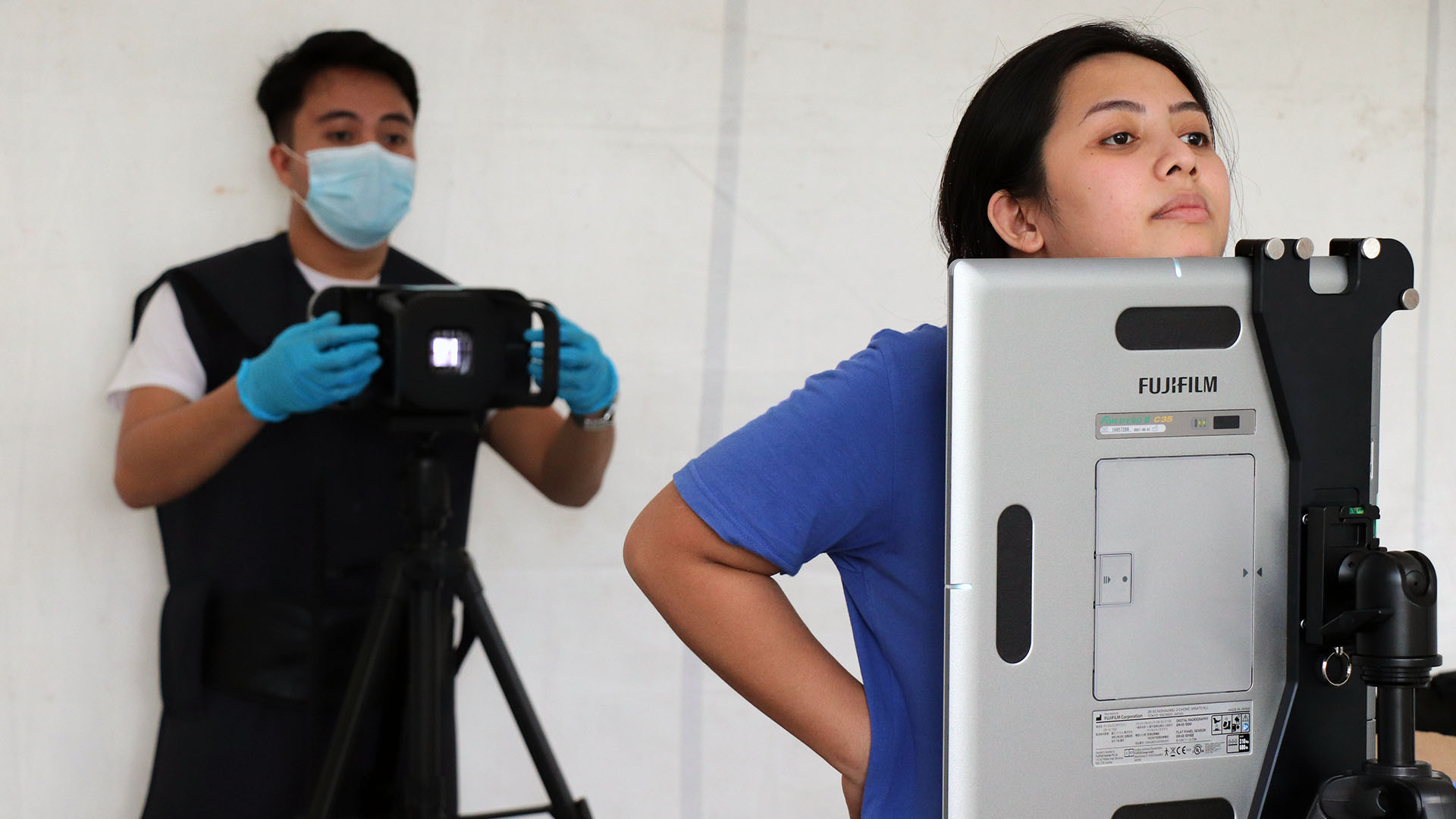
Tuberculosis
One of 372 patients that was screened using ultraportable chest X-rays that deliver results in two minutes. The screening was part of the Philippines Department of Health’s Pista ng Kalusugan health fair in Quezon City. Photo credit: Cressida Reyes
Tuberculosis
Since 1990, URC has worked with 24 of the 30 countries which collectively represent 80% of the global TB burden to combat TB – including 11 World Health Organization high-TB burden countries.
URC TB programs work with ministries of health, private health providers, and communities to reduce the burden of TB and save lives. URC TB programs help improve:
- Case detection, testing, and tracking;
- Treatment success rates for TB and drug-resistant TB; and
- Community participation in TB prevention, care, and support.
One key tactic is the Finding TB Actively, Separating safely, and Treating effectively (FAST) approach, which includes actively seeking and identifying hospital visitors, patients, and health care workers with TB symptoms, testing them, and educating them about TB. FAST promotes early diagnosis and effective treatment of TB patients as the best two ways to reduce the spread of the disease, especially among health care workers. URC is implementing FAST via projects in Uganda, the Philippines, and elsewhere.
URC is helping address TB challenges in a variety of ways to include:
Maintaining Essential TB Serviced During Crises –The COVID-19 pandemic disrupted health care around the world, including efforts by URC projects to reduce the spread and impact of TB and its drug-resistant strains. However, URC TB-focused projects in Uganda, the Philippines, South Africa, and elsewhere quickly adjusted to these new realities. Working with government counterparts, these projects devised innovative ways to identify TB cases, connect patients to effective treatment, train health care providers, and carry out communication and behavior change activities.
TB Treatment Success Rates – For several years the treatment success rate for drug-susceptible TB patients in Uganda had stagnated below 75%. The USAID Defeat TB Activity supported the Uganda National Tuberculosis and Leprosy Control Program in developing a package for improving treatment success rates (TSR) using an improvement collaborative approach. The package focuses on improving TB patient retention, reducing mortality, and improving data quality. Early implementation of the national TSR package resulted into an increase of TSR from 78% to 85% in three USAID Defeat TB-supported districts: Kampala, Wakiso, and Mukono. The initiatives contributed to an improvement of the quarterly national drug-susceptible TB TSR from 72% for the January-March 2018 cohort to 85.7% for the January-March 2020 cohort. The intervention has yielded similar TSR gains for multidrug-resistant TB cohorts.
Improving TB Case Notification Rates – The USAID Regional Health Integration to Enhance Services in East Central Uganda (RHITES-EC) Activity supported the Uganda Ministry of Health to improve regional health outcomes by increasing the use of high-quality health care services. RHITES-EC, which has operated in 12 districts in East Central Uganda since 2016, supported districts and facilities to implement national TB program strategies, resulting in: an improvement in the TB case notification rate from 92/100,000 at project start to 100/100,000 every quarter beginning in 2018; increased TB treatment success rates from 74% at project start to an average of 80% per quarter; and TB cure rates that increased from 50% to 61% in early 2020.
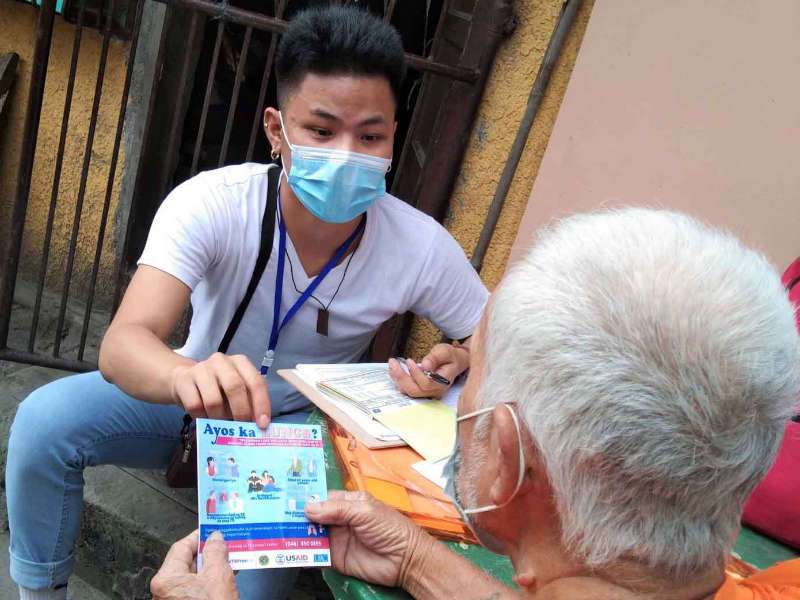
Community Involvement – The USAID TB Platforms for Sustainable TB Detection, Care and Treatment designed and pretested a social behavior change strategy, called Tibay ng Dibdib – literally, “chest strong,” which aims to improve knowledge and risk perception of TB among Filipinos. Part of the strategy included the creation of a story and coloring book. The books tell the story of two young TB survivors who overcame the disease with support of family and the community. In Marawi, this concept was tested and later scaled up with buy-in from the regional centers for health development.
Global Support for TB and MDR-TB – Over the past decade, the global TB CARE II Project has been a USAID lead implementing partner, addressing MDR-TB while working closely with the World Health Organization. The project has implemented more than 36 multi-year activities to control and prevent the spread of TB and MDR-TB. These activities improved treatment outcomes and the quality and breadth of services provided through national TB control programs in more than 15 countries. Activities include efforts to encourage innovation and standardization around implementation approaches to control TB, such as developing tools, guidelines, operating procedures, training manuals, and frameworks.
Digital Health – The USAID TB South Africa Project (TBSAP) created a mobile health application to support TB testing and treatment. The ConnecTB app was used for recording and reporting patient data during directly observed treatment support visits to TB and MDR-TB patients. The app was launched in the Nelson Mandela Bay Metropolitan Health District in June 2015. Within nine months of initiation, loss to follow-up rates in supported areas were much lower than rates in the greater Mandela Bay District area.
